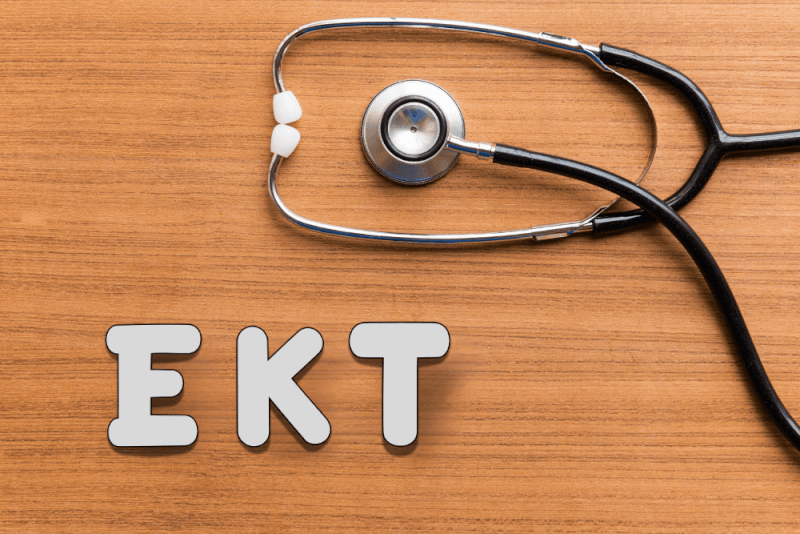Delirium causes severe impairment of mental abilities and can occur within a few hours or days. Since the symptoms of delirium and dementia are similar, information from the patient’s relatives is extremely important.
What is Delirium?
Delirium, which occurs due to changes in metabolic balance, is a temporary condition characterized by clouding of consciousness, strange visions, difficulty focusing, seeing things change shape or form, decreased awareness of the environment, senseless anger and confusion. It usually occurs as a result of drug and alcohol abuse, infections and surgeries. As patients’ medical conditions improve, psychological symptoms disappear.
Causes of Delirium
Delirium can be caused by a single cause, but many causes can cause delirium together. These factors, which make the brain vulnerable and affect brain activity, cause interference with signals in the brain. In some cases of delirium, there is no cause. Among the causes of delirium are the following:
- Medicines or combinations of medicines,
- Surgical procedures involving anesthesia,
- Severe emotional distress,
- Sleep deprivation,
- Malnutrition,
- Dehydration
- Pain,
- Exposure to toxins such as cyanide or carbon monoxide,
- Urinary tract infection and pneumonia in the elderly,
- Acute fever and infection in children,
- Severe and fatal diseases,
- Low sodium,
- DLow calcium,
- Metabolic imbalances,
- Stroke,
- Heart attack
- Lung diseases,
- Liver diseases,
- Injuries,
- Alcohol poisoning
- Drug intoxication,
- Toxicity of some drugs,
Delirium Risk Factors
Delirium can last for a few hours or a few months. If the cause of delirium is addressed and treatment is applied, patients regain their former health in a shorter period of time. The physical and mental health of patients before they become ill has an impact on the success of treatment. For example, it can be difficult for people with serious and terminal illnesses to return to their healthy thoughts and feelings. People who are seriously ill have the following complications:
- Increased risk of death,
- Maintenance needs,
- Failure to make a full recovery,
- General decline in health,
Can Delirium be Prevented?
The most successful method to prevent delirium is to avoid risk factors that cause delirium. Especially avoiding situations that affect sleep quality and create confusion will prevent the situation from worsening. Paying attention to these conditions will alleviate the severity of delirium.
Symptoms of Delirium
Delirium symptoms are seen as fluctuations during the day. Delirium, which does not show any symptoms at some hours, occurs with more severe symptoms, especially at night:
Decline in Environmental Awareness
- Little or no interest in the environment,
- Even factors that would not normally cause distraction can cause distraction
- Staying with an idea instead of answering questions during the conversation,
- Inability to focus on a specific topic and switch between topics,
Cognitive Disorders
- Sleepiness during the day while staying awake at night,
- Disturbing sleep habits,
- Slowed movements,
- A state of lethargy,
- Silencing of patients,
- Becoming withdrawn,
- Moaning or making sounds similar to moaning,
- Restlessness,
- Agitation,
- Belligerent behavior,
- Seeing things that don’t exist,
- Difficulty reading and writing,
- Disorders in behavior,
- Nonsense talk,
- Disorientation disorders,
- Difficulty remembering and saying words,
- Disorientation
- Memory impairment,
Emotional Disturbances
- Personality changes,
- Rapid and unpredictable mood changes, apathy,
- Joy,
- Enthusiasm,
- Nervous and anger attacks,
- A state of depression,
- Anxiety, fear and paranoia,
Types of Delirium
Delirium is divided into three different subtypes.
Hyperactive Delirium
It is the easiest subtype to detect among the types of delirium. Symptoms include rapid mood changes, agitation, restlessness, refusal to cooperate and hallucinations.
Hypoactive Delirium
Symptoms of hypoactive delirium included abnormal drowsiness, weakness, decreased motor activity and immobility.
Mixed Delirium
In mixed delirium, both hypoactive and hyperactive delirium symptoms are observed together. Patients experience a rapid transition between the two types.
How is Delirium Diagnosed?
n the diagnosis of delirium, the mental state must first be assessed. For this, experts measure patients’ thinking ability, attention and awareness in conversation. Tests are also administered to assess memory, perception, confusion and mental state.
Physical and neurological examinations are also performed to diagnose delirium. These examinations help to identify the causes of delirium. The neurological examination includes checking reflexes, vision, coordination skills and balance.
In addition, various blood and urine tests are used to diagnose the disease. Brain imaging tests are also performed when necessary.
Delirium Treatment
The priority in treating delirium is to treat the root cause of delirium. If the underlying cause is drug or alcohol poisoning, then these factors must be removed. If infection is the cause of delirium caused by infection, the infection must be treated. If it is caused by metabolic irregularities, treatments are applied to eliminate these imbalances.
The second stage of treatment is to heal the body and calm the brain. In order to achieve this, patients need to be provided with an optimal environment. Delirium is not a dangerous disease and there is no effective treatment for the disease itself. The most important thing to do in this situation is to ensure that the patient is safe.
Medication Therapy
Painkillers can be used to alleviate pain in patients with delirium. Psychological medication can also be used for hallucinations, fears, severe agitation and confusion.
Supportive Care
Supportive care should also be provided to patients with delirium. This care includes the following items.
- First of all, to avoid any changes that may occur in the patients’ environment
- Avoiding the use of medical devices such as bladder tubes that can cause physical limitations
- Addressing incontinence
- Relief of the pain felt by patients
- Helping patients to move
- Providing liquid nutrition
- Keeping the airways open
Things to Do to Incentivize Good Sleep
- Patients should be encouraged to perform self-care and activity during the day,
- Patients need to ensure that their daytime schedule remains stable,
- Plans need to be in place to ensure that patients can sleep uninterruptedly at night,
- Interior lighting is appropriate for the time of day,
- Preparation of a calm and quiet environment,
What to do to help the patient stay calm
- Noise and other distractions should be minimized,
- Use of reassurance techniques where necessary,
- Avoiding controversy,
- Continuously introducing the people around them,
- Approach the patient calmly,
- Familiar objects should be kept still,
- The surroundings should not be cluttered,
- Mealtimes and bedtimes should simply be communicated.
How to Avoid Complex Problems?
- Metabolic irregularities or infections need to be treated quickly,,
- They should be encouraged to engage in regular physical activity,
- They should drink plenty of fluids,
- They need to make sure they eat healthy foods,
- Implement a regular program,
- Regular administration of medicines in the program,












